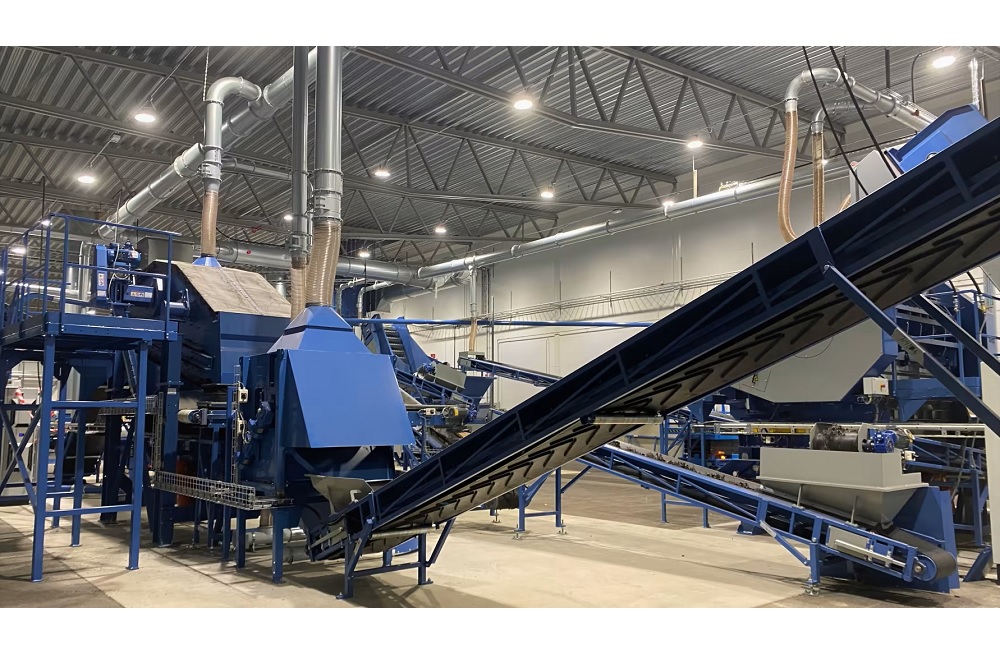SDAB is putting into operation a unique and world-leading tyre recycling facility at the Technical Verken at Gärstad in Linköping
The four-hectare recycling facility will be SDAB’s flagship facility and will handle up to half of the 90,000 tons of end-of-life tyres that are collected annually. The facility is an important prerequisite for achieving the goal of increasing material recycling, creating space for new areas of use and increasing the value of the tire raw material.
Tyre and Rubber Recycling reported on the plans to develop this plant when interviewing Fredrik Ardefors of SDAB when the group took control of end-of-life tyre management in Sweden.
In 2021, SDAB presented the plans that from January 1, 2023, together with local partners, they will be responsible for the nationwide collection and recycling system of end-of-life tyres. This development at the site at Sweden’s largest recycling centre at Teknisa Verken, Gärstad is part of this development.
“The collaboration with Tekniska Verken is optimal as they, like SDAB, have the goal of increasing resource utilisation and minimising the impact on the environment. It is a mutual inspiration”, says Fredrik Ardefors, CEO of SDAB.
“It feels good that SDAB is establishing itself in our area,” says Michael Fahlström, the business manager from Tekniska Verken. “We get a tenant whose operations are well in line with our own, which is based on, among other things, the handling of residual products and recycling in order to achieve our vision of building the world’s most resource-efficient region.”
Årsjö Recycling AB, which will become SDAB’s largest partner, will be responsible for the operation of the facility in Linköping. During ongoing preparations, the focus has been on the handling of incoming tyres as well as modern production methods, with the aim of optimising areas of use for the recycled material.
“The philosophy behind the facility is to better adapt the material to the customers’ needs. We adapt the entire value chain, from workshop to delivery of materials, to create function and environmental benefits in the various applications,” says Ardefors.
Almost the entire recycling process at the new facility will take place under cover or indoors, to reduce the environmental impact and to protect the recovered steel from rusting. In addition, it makes the already low noise levels even lower. The end-of-life tires will be cut, shredded and granulated in a special process for selected granulation.


















